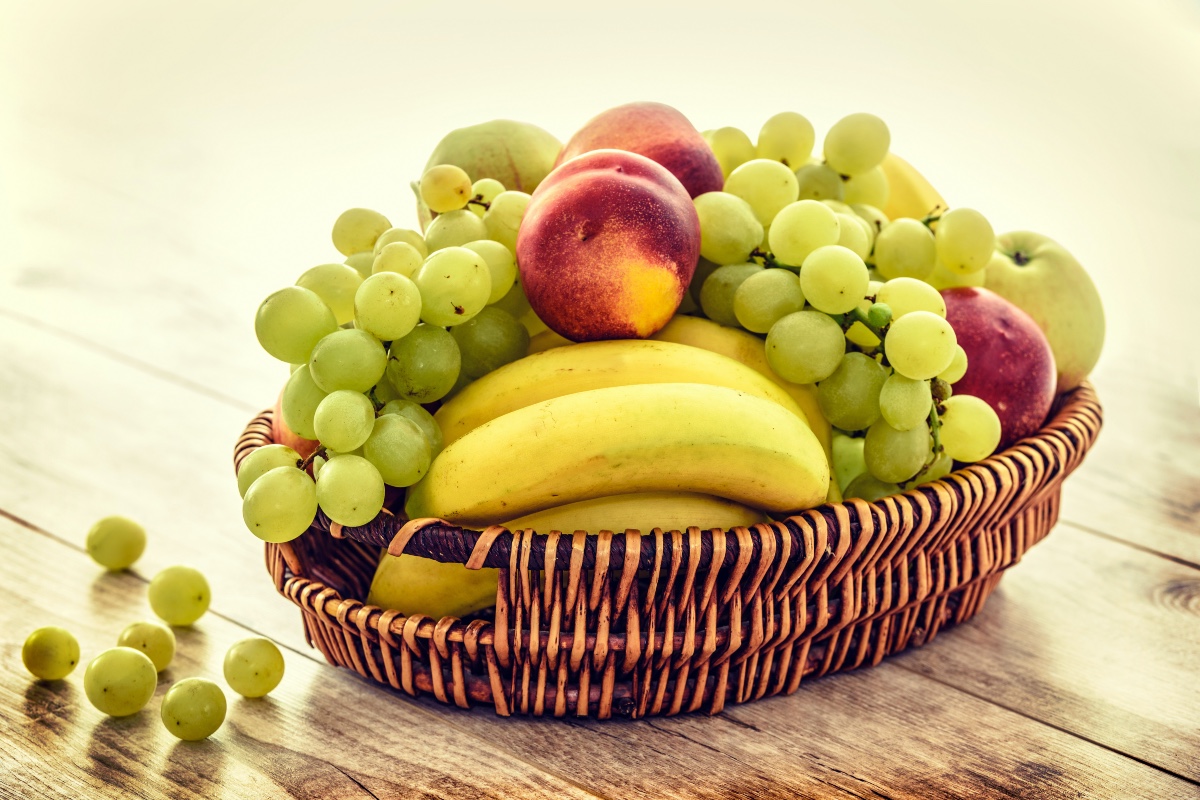If your New Year’s resolution to lose weight is stalling, consider your gut health. Last month if you logged onto the r/nutrition subreddit, the buzzy word “gut microbiome” came up.
“There is an increasing body of research concluding that gut microbiome strongly [affects] a lot of aspects of our bodies – composition, weight, mood, mental clarity, etc.,” posted u/Dr.Melbourne.
The guy may have “Dr.” in his username, but Reddit isn’t the best place for medical advice. We asked a real doctor: What is the gut microbiome?
It’s the “collection of bacteria that live in the digestive tract,” notes Dr. Kenneth Brown, a gastroenterologist and host of the podcast “Gut Check Project.” And it may be affecting your weight-loss goals.
“The gut microbiome…has been shown to influence metabolism and energy balance, suggesting that it may be a key factor in weight loss,” Brown says.
Brown and other experts shared why.
What’s the link between gut health and weight loss?
Gut health and weight loss are intertwined.
“Your gut is the gateway to optimal health,” says Dr. Amy Myers, a two-time New York Times bestselling author and internationally acclaimed medical and functional medicine physician.
Research from 2018 indicated that the composition of a person’s gut microbiome might offer clues into a person’s obesity risk.
“Those with obesity have been found to have a different gut microbiome composition compared to lean individuals,” says Rachel Dykman, MS, RDN, CDN, a registered-dietician nurse with a private practice in New York City. “Our gut bacteria may impact the amount of calories we extract from food we eat. Our gut microbiome may also impact our blood sugar regulation and appetite, which can both affect our weight.”
Myers agrees that diet plays a role in gut health. Other factors include:
- Stress
- Antibiotics
- Poor sleep patterns
- Environmental toxins
Like diet, these lifestyle habits and environmental exposures can affect the number on the scale.
“All of these factors can lead to weight gain and prevent you from losing weight,” Myers says. “Sometimes, your gut can be so out of balance it leads directly to weight gain, which can happen when you develop autoimmunity.”

Can fasting reset the microbiome?
The early months of a New Year – and even the lead-up to summer — are famous for diet and weight loss advice that often includes “cleanses.” These are typically euphemisms for fasting. Might fasting help your gut health?
“There is some promising evidence that fasting can positively alter the gut microbiome and reduce body weight,” says Jennifer McManus, an RD, LDN, CDCES at Pendulum, a biotech company offering solutions to aid in gut health and the gut microbiome. “This weight loss could be due to the increased microbiota diversity and abundance of Akkermansia muciniphila [a keystone microbe associated with weight loss] after fasting. Calorie restriction through fasting can be a promising way to alter the gut microbiota composition.”
McManus pointed to a 2021 study that found that fasting could change the gut microbiome and help people with metabolic syndromes lose weight. It also helped lower blood pressure. She also noted a 2015 study of overweight people that found that weight reduction via a fasting program, plus a probiotic, could improve the gut microbiota.
However, what you do post-fast is as important as the fast itself.
“The microbes are essentially starved for food, so the first thing you put in your body coming off a fast is super important,” McManus says. “You are deciding who gets the jumpstart with food! So, when you break your fast, think about providing for the good bugs with things like high fiber and high polyphenol foods.”
McManus suggests speaking to a healthcare provider before starting one.
“A fasting plan might not be conducive to everyone’s lifestyle,” she notes.

How to improve your gut health
You may want a quick fix. However, it’s unclear how long it will take to improve your gut microbiome.
“The time it takes to improve your gut microbiome can vary depending on factors, such as the individual’s current gut health, diet, and lifestyle,” Brown says.
All you can do is the best you can. Experts shared best practices for trying to move things along.
Consume gut-healthy foods
McManus suggests focusing on fiber if you’re looking to add gut-healthy foods to your diet.
“High-quality dietary fiber is found mostly in whole fruits, vegetables, nuts, legumes, whole grains, and seeds,” McManus says. “Prioritizing foods with soluble fiber such as pears, apples, avocados, broccoli, and sweet potatoes can help lead to a healthier gut.”
Bonus: “The cool thing about fiber is that it also leads to satiety which can help prevent overeating and lead to weight loss,” McManus says.
She also suggests foods rich in antioxidant polyphenols.
“Polyphenols are abundant in certain plant-based foods such as pomegranates, cranberries, grape seeds, plums, and artichokes,” McManus says.
Myers suggests avoiding certain foods that can affect the gut microbiome, including:
- Alcohol
- Sugar
- Caffeine
Consider a probiotic supplement
Supplements aren’t regulated by the FDA, making them controversial at times. However, McManus says there’s evidence, such as the 2015 study, showing probiotic supplements can aid in gut health and weight reduction.
“With all of the research supporting Akkermansia muciniphila’s role in weight management, this would be an ideal microbe to introduce,” she says. “There are other strains easily available to help metabolize fiber and produce a powerful short-chain fatty acid called butyrate. Butyrate is very important for many different metabolic processes that take place in the body and can be beneficial as part of a weight loss strategy.”
Get regular physical activity
Gut-healthy foods are useful, but exercise is still a key part of weight loss.
“Regular physical activity can help to improve gut health by increasing the number of beneficial bacteria in the gut,” Brown says.
The American Heart Association recommends getting 150 minutes of moderate-intensity or 75 minutes of vigorous-intensity physical activity each week.
Improving gut health could aid in weight loss. Diet plays a critical role. Aim to eat fiber-rich, gut-healthy foods like fruits and veggies. Getting foods with polyphenols, like pomegranates and plums, is also beneficial. Regular physical activity can also improve gut health. Fasting can help, but experts know it’s not for everyone. Always discuss your concerns or any changes to your dietary plan with a doctor first. They can let you know if you’re at risk for adverse effects, and can develop a better plan for you to help you improve your gut health.




